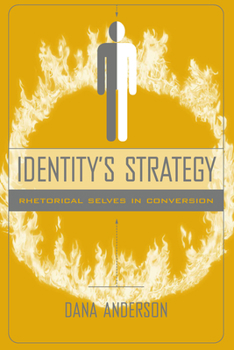Identity's Strategy: Rhetorical Selves in Conversion
(Part of the Studies in Rhetoric & Communication Series)
An investigation into the persuasive techniques inherent in presentations of identity
In Identity's Strategy, Dana Anderson seeks to construct a rhetorical theory for understanding persuasive strategies involved in the expression of personal identity. Drawing on Kenneth Burke's "Dialectic of Constitutions," Anderson analyzes conversion narratives to illustrate how the authors of these autobiographical texts describe dramatic changes in their identities as a means of influencing the beliefs and action of their readers.
Often a troubling theoretical term, identity conveys the idea that people possess a certain capacity for self-understanding and self-definition. But whatever the forces at work behind the identity one claims, the act of communicating this self-interpretation to others is inherently rhetorical. Expanding on Burkean concepts of human symbol use, Anderson works to parse and critique such inevitable persuasive ends of identity constitution.
Anderson examines the strategic presentation of identity in four narratives of powerful religious, sexual, political, and mystical conversions: Catholic social activist Dorothy Day's The Long Loneliness, political commentator David Brock's Blinded by the Right, Deirdre McCloskey's memoir of transgender transformation, Crossing, and the well-known Native American text Black Elk Speaks. Mapping the rhetorical strategies at play in each narrative, Anderson points toward a broader understanding of how identity is made--and how it is made persuasive.
Related Subjects
Language Arts




